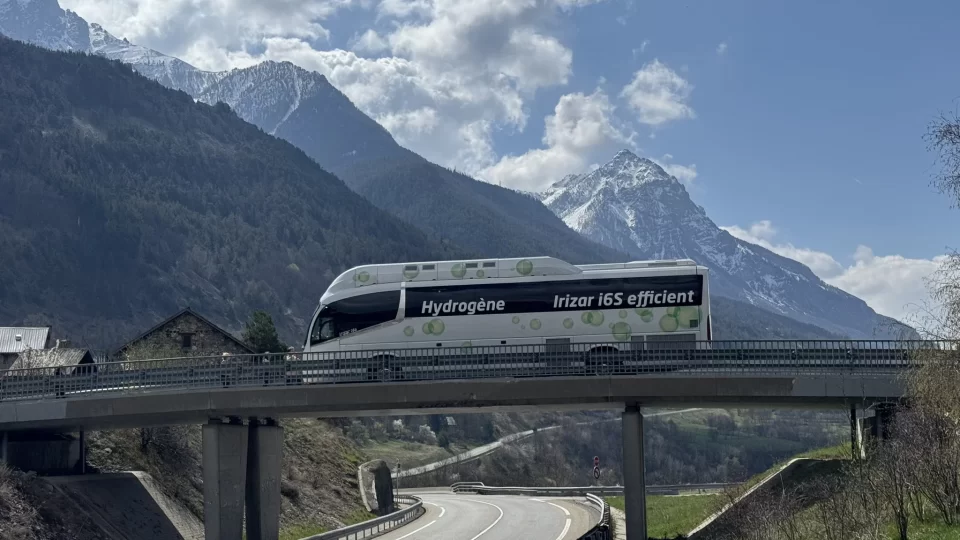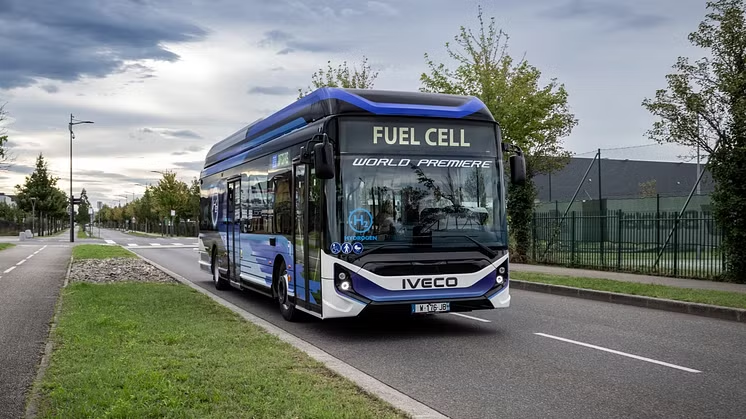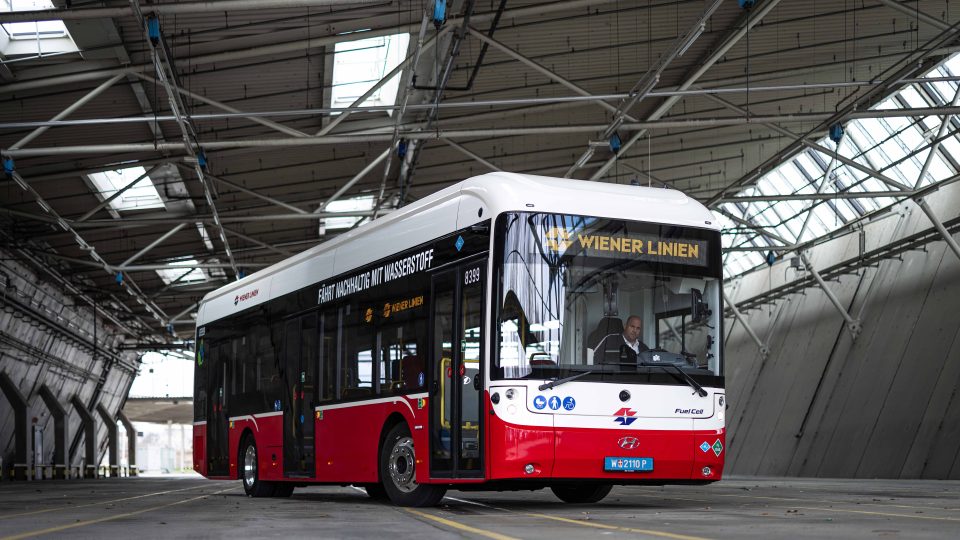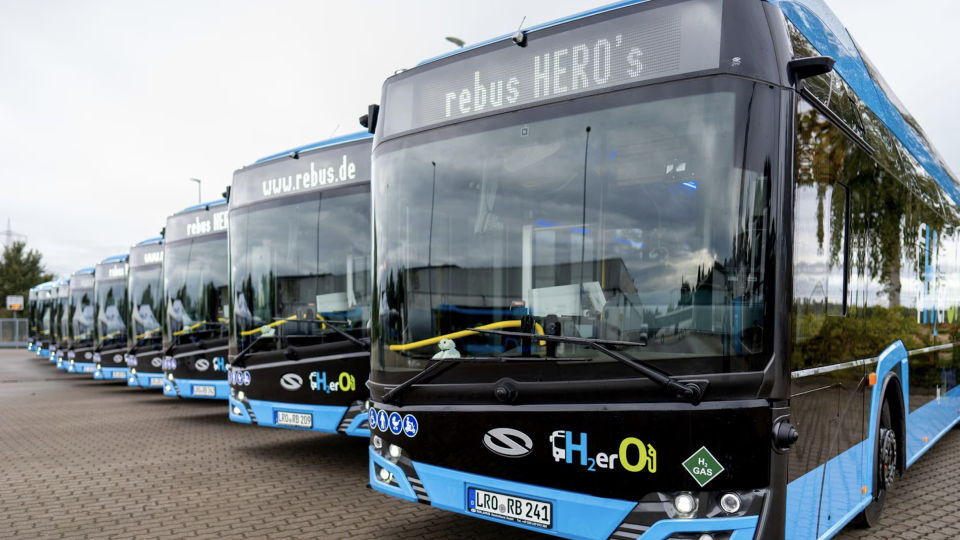Solaris has just delivered 10 Urbino 12 hydrogen in Germany
In recent weeks, Solaris has delivered 10 hydrogen buses to two German customers from the Upper Bavaria region. 5 Urbino 12 hydrogen were delivered to the carrier Busreisen Ettenhuber GmbH, and another 5 to Martin Geldhauser GmbH & Co. KG. The buses are scheduled to enter regular service this fall, coinciding with the completion of hydrogen filling stations currently under construction at the Geldhauser and Ettenhuber depots. […]
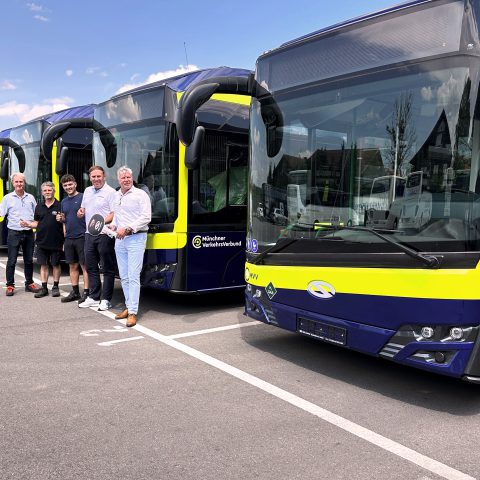
In recent weeks, Solaris has delivered 10 hydrogen buses to two German customers from the Upper Bavaria region. 5 Urbino 12 hydrogen were delivered to the carrier Busreisen Ettenhuber GmbH, and another 5 to Martin Geldhauser GmbH & Co. KG.
The buses are scheduled to enter regular service this fall, coinciding with the completion of hydrogen filling stations currently under construction at the Geldhauser and Ettenhuber depots. These stations will be supplied with green hydrogen produced exclusively from renewable energy in Pfeffenhausen near Landshut.
Solaris fuel cell buses in Bavaria
Busreisen Ettenhuber GmbH and Martin Geldhauser GmbH & Co KG., two private, family-run bus carriers from Bavaria, ordered a total of 10 Solaris Urbino 12 hydrogen buses in April last year. All vehicles are now with the customers in the Munich and Ebersberg regions.
Solaris states that “In coordination with the districts of Munich and Ebersberg and the Munich Transport Authority (MVV), it was agreed that the vehicles would be deployed on different routes to gain extensive experience regarding route lengths, weather conditions, capacity utilization and many other variables in this pilot project. This approach aims to continuously optimize transport operations. Both the Geldhauser and Ettenhuber buses have similar specifications. They are equipped with an axle with integrated electric motors. Each bus have ultra-modern fuel cell kits with a capacity of 70 kW. Hydrogen is stored in five tanks with a total capacity of 1,560 litres. Thanks to this technology, the buses can cover a minimum of 350 km on a single refueling. The hydrogen Solaris vehicles are equipped with a relatively small Solaris High Power traction battery, which supports the fuel cell during periods of peak electricity demand.
In addition to safe driving features, the hydrogen buses for Upper Bavarian carriers are equipped with MobilEye Shield+. This system monitors blind spots and warns the driver with acoustic and light signals if a pedestrian or cyclist enters the area. In addition, the carriers have ordered the modern eSConnect system for remote diagnostics of buses. The program helps optimize fleet operation by increasing vehicle availability, reducing bus downtime and avoiding unnecessary vehicle returns to the depot”.


